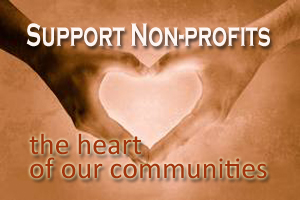Sexting Presentation – Stand Up Day at PCH
Violence Prevention Month is the full month of February, Stand-Up Week falls during the last week of February (International Stand-Up Day is February 29th), and Bullying Awareness Week is in November. Why is it important to highlight these observances? Have they become clichés, catch phrases, the latest buzz, or a case of the all too familiar losing its social intent? That’s a tough question to answer. Yet, for those working in the field of prevention the importance of these activities is invaluable, continually striving to make change and hoping that the messages will be heard, understood and make a difference in the choices others make.
The Community Youth Network, in partnership with local schools and agencies, is one of those prevention bodies. Often taking a lead role in collaboration with key associates, it assists with the facilitation of activities during these observances, and attempts to make prevention strategies part of its regular role within community as violence, bullying and other detrimental behaviors are not limited to specific days or weeks, but are ongoing issues.
On Friday, February 28th, several schools in the Port au Port area hosted Stand-Up activities. Among other activities, Piccadilly Central High students were given a presentation by the Guidance Counselor and RCMP highlighting the detrimental effects of bullying, cyber-bullying, and the responsibilities and consequences of sexting. Sexting involves sending or receiving sexually explicit or sexually suggestive nude or semi-nude images or videos, generally via cellphone or other electronic media. Cyberbullying and sexting are significant problems facing teens and schools because of the psychological, emotional, behavioural, and physical repercussions that can stem from victimization. Also new laws in Canada can hold people, including teenagers, criminally responsible for posting and sharing sexually explicit pictures of themselves and others. A court in B.C. found a 17 year old girl guilty of distributing child porn and uttering threats for “sexting” pictures of her boyfriends ex. There are several other cases of sexting in courts across the country, so it is vital that teens learn the reality of how cyber-bullying and sexting can affect not only the lives of others, but how they themselves can be held accountable.
For the majority of students at the school, the presentation was an eye-opener, particularly in relation to behaviours that border the social “norm” for the generation. So even at the minimal cost of an occasional eye roll, boredom sigh or the inattentive, the continued sharing of information and establishment of prevention and intervention strategies must be a priority for all partners.




